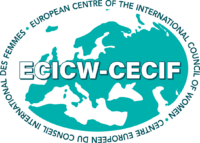Resolution adopted at the GA of the ICW, Avignon, May 2022
Original in English
Reiterating the ICW Resolution CORRUPTION adopted at the ICW General Assembly 2015 in Izmir,
Bearing in mind the UN Convention against Corruption (UNCAC) adopted by the GA Resolution 58/4 in 2003 and in force since December 2005,
Recalling the need for context-specific and effective preventive anti-corruption education,
Recognizing that corruption presents a serious impediment for the SDGs and a threat to the fulfilment of the 2030 Agenda for Sustainable Development,
Aware that corruption disproportionally affects women,
Aware that gender equality is a precondition for Sustainable Development and that women are affected differently by corruption than men, that there is also a need to take into account the specific perspectives of women and men,
Noting with concern that corruption blocks women from public and private decision making,
Stressing that corruption exacerbates gender inequalities and prevents women from gaining access to their social and economic rights and reduces the public resources available for them,
Realizing that corruption is placing women at a disadvantage when seeking access to economic opportunities,
Aware that COVID-19 has exposed the major risks corruption creates in the health sector, the environment, trafficking in persons and smuggling of migrants and of the violation of Fundamental Human Rights,
Stressing that corruption poses a significant threat to public health worldwide,
Stating that corruption undermines fair, efficient and equitable responses to the crisis and States’ capacity to respond to emergencies such as a dual health and economic crisis,
Aware of the link between corruption and environmental crime,
Gravely concerned that in times of crisis, instability and closed borders, corruption, as a facilitator of smuggling of migrants, poses a great danger for disparate peoples,
Aware of the interplay between organized crime and corruption, especially cross- border corruption in order to improve anti-corruption efforts (UNTOC and UNCAC),
Bearing in mind the important role of Civil Society, NGOs and community-based organisations in the prevention of corruptionand in capacity building in support of the prevention of corruption,
THE INTERNATIONAL COUNCIL OF WOMEN CALLS ON ITS NATIONAL COUNCILS TO:
- Urge their respective governments to support, sign and ratify the UNCAC if not yet done so;
- Remind governments of Article 13 of the Convention which encourages States Parties to promote the active participation of Civil Society in the prevention of and fight against corruption;
- Urge their respective governments to include NGOs (Civil Society) in UNCAC at all stages from the review process to its implementation (Resolution 4/6 of the Marrakech Declaration);
- Acknowledge the request that NGOs must be included in the follow up of UNGASS after years of being excluded from participation in the negotiations;
- Follow critically the opportunities and benefits of digitalization as well as the risks and limitations of technology in preventing corruption;
- Request governments to mainstream gender considerations and to collect disaggregated data on gendered forms of corruption and their impact on women;
- Strictly condemn gendered forms of corruption such as sextortion, sexual favours and benefits as a form of bribery
- Seek cooperation with CEDAW in order to formulate gender-inclusive and gender-sensitive anti-corruption policies;
- Ensure that whistle-blower and reporting mechanisms are gender sensitive and that women can safely report on corruption and demand accountability;
- Ensure a gender balance in review mechanisms and expert groups dealing with corruption;
- Remind Governments on the obligations as contained in the UNGASS 2021 outcome document and Resolution A/RES/S-32/Add.1 adopted by the UNGASS on 2 June 2021 “Our common commitment to effectively addressing challenges and implementing measures to prevent and combat corruption and strengthen international cooperation,” Kyoto Declaration 2021, Marrakech Declaration on the Prevention of Corruption 2011, Bali Business Declaration 2008, Abu Dhabi Declaration 2019, Outcome Document of the UNODC Gender Equality Forum 2021 (Gender related aspects of combating corruption), UNODC Guidelines “Speak up for Health! Guidelines to Enable Whistle-blower protection in the Health Care Sector” 2021, UNODC Report “The Time is Now. Addressing Gender Dimensions of Corruption” 202
